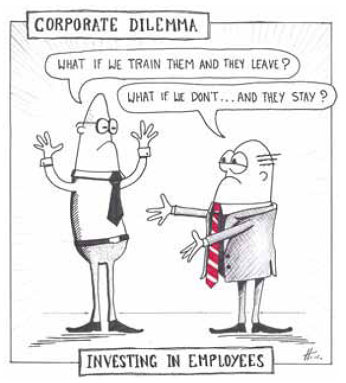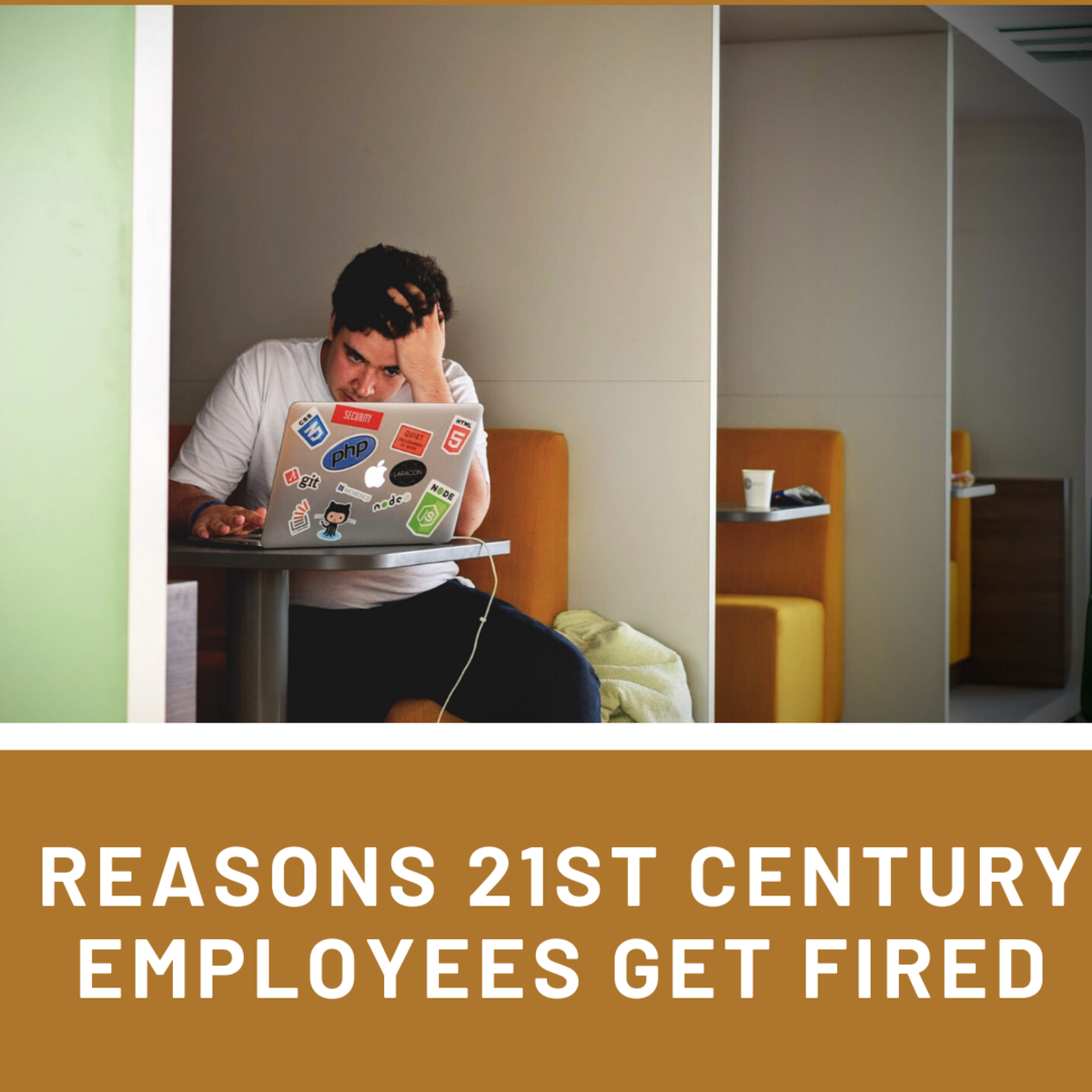How Much Should We Invest in Training Our People?

Training your Employees – Is it Worth the Risk?
How discreet and rapt are employers really when it comes to investing in and training their employees? Or simply, how would you, as an employer, rate yourself on how well you equip your employees to effectively carry out the responsibilities you delegate to them? Should the employer hold its employees accountable for lack of performance and incompetency when the employer is partly to be blamed for not investing in and training its employees to achieve certain specific outcomes? Personally, I believe this is an area that needs a major overhauling.

Employers Do Not Invest in Employees – They Only Rip Off their Employees
Most employers, if not, all employers and organizations, care less about investing in and equipping their employees with the necessary skills and knowledge required to maximise their performance on the job they are summoned to do.
Employers are more concerned over returns on their investments. They do not want to risk training their employees and then their employees leave. Sometimes it is an issue of affordability. Is training your employees the best use of your available capital? These are only some of the few fears of the employers.
If you are an EMPLOYER, would you take the risk to invest in training your EMPLOYEES?
If you are an EMPLOYEE, would you be loyal and remain with your EMPLOYER after the EMPLOYER invests so much capital in training you?

A Different Perspective of the Risk that Employers are Not Willing to Take
If I were an employer, I would ask myself the same question from a totally different perspective. What would happen if I refuse to train my employees and they choose to stay loyal and serve me and my organization?
Putting another important factor in very simple layman language, how do we expect employees to perform in their own capacity to meet the specific needs of the organization? We know that the qualification that each employee possesses may only reflect the basics he or she learnt in school or college. Even the experiences accumulated over the years may not be specific to the job he or she is entrusted to do in your organization although the experiences may be relevant.
Why would an employer want to pay someone to do a job when that someone does not possess the skills and knowledge specific to that job? How effective will that someone be with respect to the specific tasks and responsibilities entrusted to him or her? Why not arm that someone with everything he or she needs to excel at the job as required by you, as an employer? Why do employers hesitate to equip their employees with the right tools to accomplish a specific task more efficiently and effectively as possible? It has been a widespread experience that an employee can save a little money up front with such hesitation but, it will always cost the employer more in the long run. And in worst of cases, the employer may lose clients to another and more competitive employer.


The Performance of your employees and the Organization reflects on the kind of Leader You Are
Employers have rigorous protocols in place for sourcing potential and recruiting the most suitable candidates. Employers either recruit candidates directly or through a recruiting agency. A candidate may beat the rigorous recruitment protocols with his or her colourful resume and probably forged documents but what happens after the recruiting process? Many a times new recruits are insufficiently trained and on most occasions left on their own entirely to achieve the employers’ specific objectives, then accused for non-performance and then eventually fired. We all know that those who perform better and achieve the specific objectives are the ones who have received proper and specific training.
If your employees are not trained properly and do not perform as expected then that reflects negatively on you as their employer. The incompetency of your employees will negatively impact your performance as a leader and that can possibly be a threat to your job security and ultimately harm your income.
So how much should you as an employer invest in training your employees? It is a sad but an important fact to know that we spend so much time with the people we work with then with our friends or families. It is therefore fair and just that employers invest an amount of capital equal to the time they spend with their employees in order to train and equip their employees for the better.









